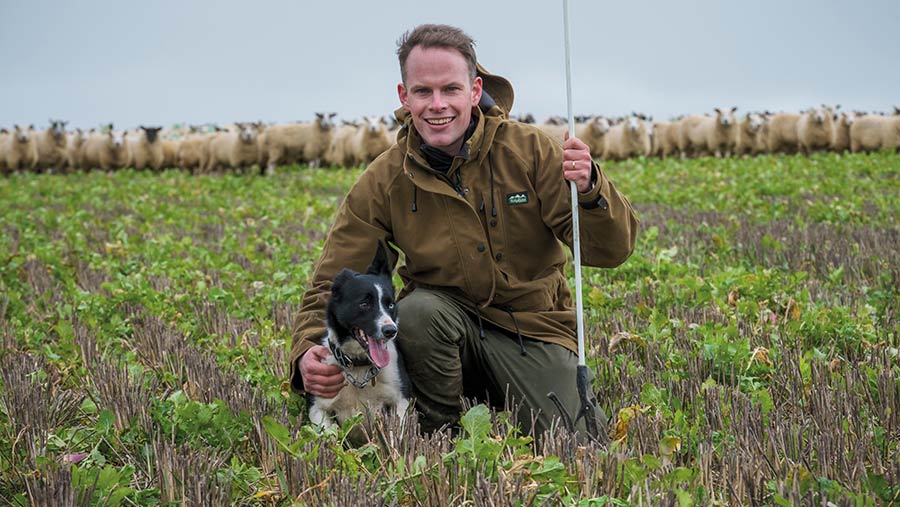Farmer Focus: Starting some field work in the soggy spring
 © Jason Bye
© Jason Bye The dykes are full this February, after another very wet winter. No spring barley or beans have been drilled here, much to my frustration.
We have managed to terminate cover crops on the odd dry day when our trailed sprayer could travel.
The beauty of permanent tramlines means this isn’t too troubling and cover crop destruction should release a little nitrogen to the crops that will follow.
See also: What is the true value of on-farm soil organic matter?
Ex-sugar beet fields have also received a dose of glyphosate while they await cultivation. This is to prevent herbicide-tolerant Conviso-Smart sugar beet re-growing or causing long-term tolerance problems.
The wet weather has made for a quiet month, and most staff on the farm have managed to use up their remaining holiday entitlement while we wait for land to dry out.
We’ve managed a small amount of cultivation behind sugar beet, and our Horsch Avatar has re-drilled some winter wheat for a third party by slotting in some seed over the failed crop.
The drill is three years old now and will have its first new wearing metal once spring drilling is complete.
We’ve managed to get 25% of our fat lambs away so far, and now the race is on to finish the rest before the turnips run out and our spring crops need to be planted.
We have made use of the government’s animal health and welfare funded visit. A comprehensive flock health plan has now been put in place, and some sharpening up on our worm and fly tactics will stand us in good stead.
The Sustainable Farming Incentive has continued to dominate conversations at contract farming meetings and, like many arable contracting outfits, we will be farming less land next year.
The good news is that Defra are introducing new actions for 2024 with no-till farming paying £73/ha and multi-species spring, summer or autumn cover paying £153 to £163/ha. These are two very welcome introductions.
Almost all our winter cereals are direct-drilled, and most of them follow a summer catch crop. We have risked a lot in the past four years to get ahead in the game, trialling new techniques at scale and learning by doing.
This leap of faith is now paying off, and our loyal contract farming customers will reap the rewards.


